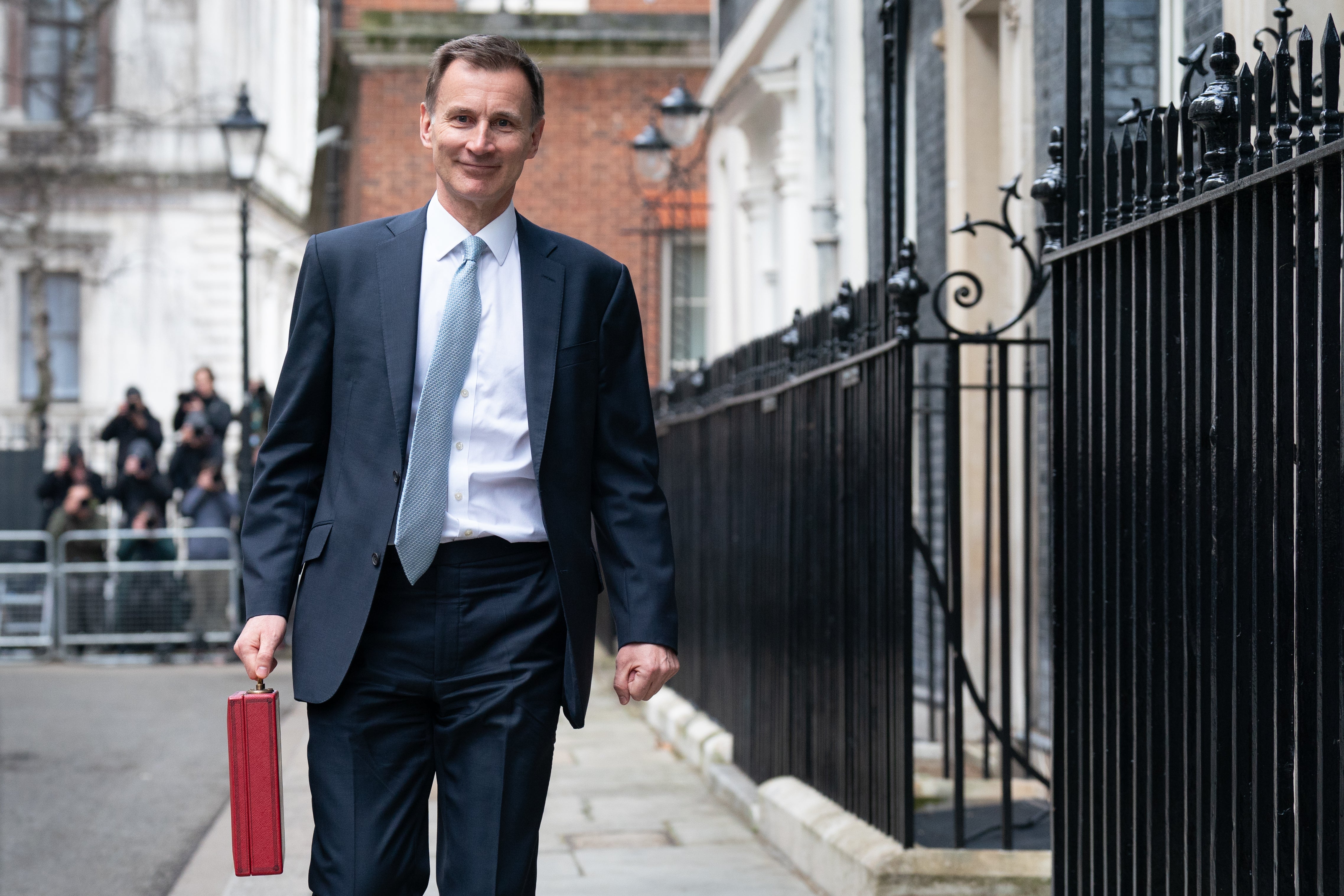What is all the fuss about the triple lock – and how will it affect voters?
As the chancellor announces his commitment to the long-standing policy on pension rates, Sean O’Grady asks if this is a wise move on the part of the Conservatives – and how they might be planning to pay for it


In what may yet prove a more significant move than his cuts to national insurance, the chancellor, Jeremy Hunt, has said the Conservatives will retain the triple lock system to determine annual rises in the state pension if they win the election. Hunt says the pledge will appear in the next Conservative manifesto. The decision raises some interesting questions...
What’s the triple lock again?
It’s a commitment to increase the level of the state pension applicable to any given individual by either the rate of inflation (as measured by the consumer prices index); the rate at which wages are going up; or 2.5 per cent, whichever is the greater. It has been policy, with one temporary suspension, since 2010, when the idea – which the Liberal Democrats came up with – was incorporated into the policies of the coalition government and the Conservatives adopted it as their own.
Why has Hunt said this now?
That the Tory policy on the triple lock has been decided at this stage suggests that work on the Conservatives’ election manifesto is very far advanced – which implies in turn that a May election was, at one point, a realistic possibility. Now that it isn’t, Hunt has decided to announce the policy anyway and maximise the political advantage it gives him with the “grey vote”. He wants to get the good news out asap.
It also has the effect of once again wrong-footing Labour, who haven’t yet decided what to do and therefore sound evasive when asked to say whether they would match the Tory promise. Keir Starmer will only go as far as to declare: “We will have to see what the state of the economy is as we go into the election. We will publish all of our plans as we go in, and answer that question, but I believe in the triple lock.”
At the moment, therefore, we have the unusual situation wherein a key, and potentially expensive, element of welfare spending is being treated more generously by the Conservatives than by the Labour Party. Perhaps for sentimental reasons, the Lib Dems are sticking with what was their policy in the first place.
Is it expensive?
It’s difficult to say. Obviously, raising the retirement pension is more expensive than leaving it where it is to wither away, but that’s not a politically sensible option, given the size of the demographic involved and their high propensity to vote. In a world in which inflation has been tamed, wages are rising more slowly, and the economy is returning to something like its old trend rate of growth (2 to 3 per cent a year), it might be affordable without too much difficulty. Or not, if we’re less lucky.
For context, total spending on retirement benefits stands at £124bn a year, about 5 per cent of national income. It’s more than half of the total benefits bill, and one big reason why “cutting welfare” is easier said than done.
The strength of Hunt’s pledge suggests that there won’t be much money left over for compensation for the Waspi women.
Will it help the Tories to hang on to older voters?
Well, it should do, and they are now the only demographic among which the Tories are remotely competitive, by about 37 per cent on voting polls to 32 per cent for Labour. The Conservatives have to shore up the vote not only against the principal opposition, but also against Reform UK, which commands 16 per cent of the voting preferences of the over-65s.
But didn’t the Tories scrap the triple lock?
They did, but to be fair, that was only for one year during the pandemic, when the lockdowns sent wage levels haywire. That’s not to say they won’t break their promise again, though.
Is the triple lock a good idea?
For pensioners, on the whole, yes – and it has reduced the scandal of pensioner poverty, which grew slowly but insidiously after 1980, when the Thatcher government broke the link between pensions and earnings. As Hunt explains: “When we came to office in 2010, pensioners were more likely to be in poverty than other income groups. Now, because of the triple lock that we introduced, they are less likely to be in poverty.”

But for younger voters in particular, with no memory of old folk routinely being unable to afford food or heat their homes in winter, it may just seem like another instance of boomer selfishness and intergenerational injustice. It feels wrong for different age groups to be pitted against each other.
Snags?
Well, yes. Look out, also, for what the party spokespeople say about raising the retirement age (again), or cutting spending on social care, or the NHS, or tax relief on pension contributions to pay for the pensions guarantee. Another £300 a year, say, isn’t much if it means you need to wait several hours for an ambulance. All of these are equally vital considerations for those who are approaching retirement or have already finished work.
The perils of pushing the age at which one is eligible for the state pension have been highlighted by the recent case of the Waspi women. Given the frozen tax thresholds, the state pension, which is not in practice taxed, could become liable for tax for the amount above £12,000 (as is the case with private pensions and other sources of income).
More broadly, the triple lock rule is inflexible, and there’s no “destination” for the policy. The Institute for Fiscal Studies suggests that a target for a set date by which the state retirement pension would reach a minimum of, say, 30 or 35 per cent of average earnings would be better both for personal retirement planning and for managing the public finances.
How much do we have to look forward to?
There is no state pension “pot” – that is a surprisingly common misapprehension – and what you receive, and when, is at the whim of the government of the day. The contributory principle has virtually disappeared, and, like all benefits, the retirement pension is paid for by general taxation (including national insurance contributions) gathered by HMRC from every British resident.
The only vestigial element of “insurance” is that you will still need a minimum level of NI contributions (and you can top up for missed years); provided that is met, then currently the pension is worth £203.85 a week at the new flat rate (for those who reached pension age after April 2016) and £156.20 a week for the full, old basic state pension (before April 2016). Next month, the payments will rise to £221.20 and £169.50 per week respectively, equivalent to an annual income of £11,502 or £8,814.
Note that the higher rate is dangerously close to the (frozen) £12,000, so it’s quite conceivable that people on the retirement pension who have no other income will find themselves being taxed on it for the first time ever. A question for Hunt and his counterparts.
Join our commenting forum
Join thought-provoking conversations, follow other Independent readers and see their replies
Comments
Bookmark popover
Removed from bookmarks